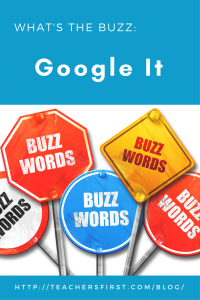 It’s hard to believe that Google just turned 19. In that time, the name of the search engine has become a household term as well as an entry in the dictionary. There is a generation of students who have always had access to the search engine and don’t know what life was like before you could just “Google it”.
It’s hard to believe that Google just turned 19. In that time, the name of the search engine has become a household term as well as an entry in the dictionary. There is a generation of students who have always had access to the search engine and don’t know what life was like before you could just “Google it”.
Before search engines became a way of life, the need to cross-check and verify source information when doing research was understood. While search engines have made it easy to find information, it’s not always clear what to do with the information returned by a search engine. Additionally, various search engines can produce differing results for the same query making the “next steps” even more important.
Understanding the source of the information that you’ve found is a very important skill given today’s climate. Recognizing the hallmarks of a “fake” website has never been more important. Students who don’t realize that there is a need to make sure the source of their information is legitimate may confuse fact with opinion as they prepare reports.
As we head back to school, it is important that our digital natives – students who have grown up in a digital age – receive refresher lessons in digital and media literacy. Lessons that help them understand what a search engine really is and how to critically evaluate the results returned will be invaluable. Here are a few resources to help you prepare to teach digital and media literacy in your classroom:
- Microsoft’s Digital Literacy Curriculum
- Google Search Education
- Brainpop Educators Internet Search Lesson ideas
- Cable impacts InCtrl
- Media Smarts
- TeachersFirst’s Digital Citizenship Special Topic Collection
For those who prefer a more guided approach to learning about this topic, we will be sponsoring two events in the fall:

